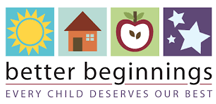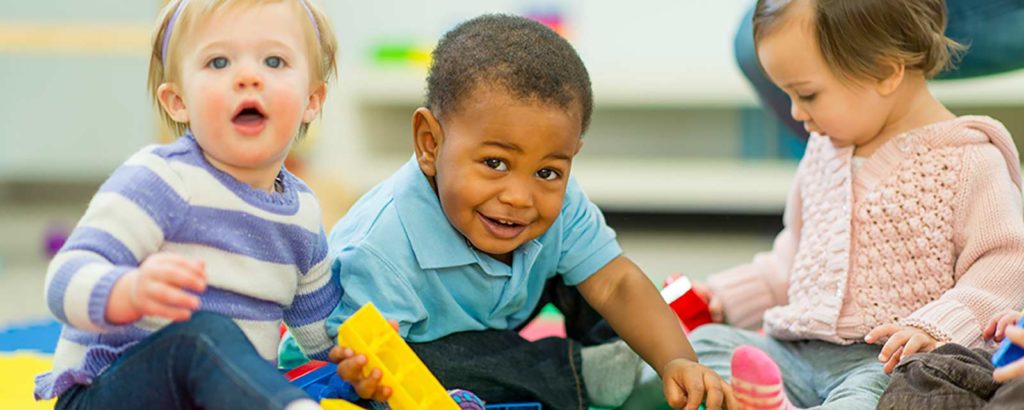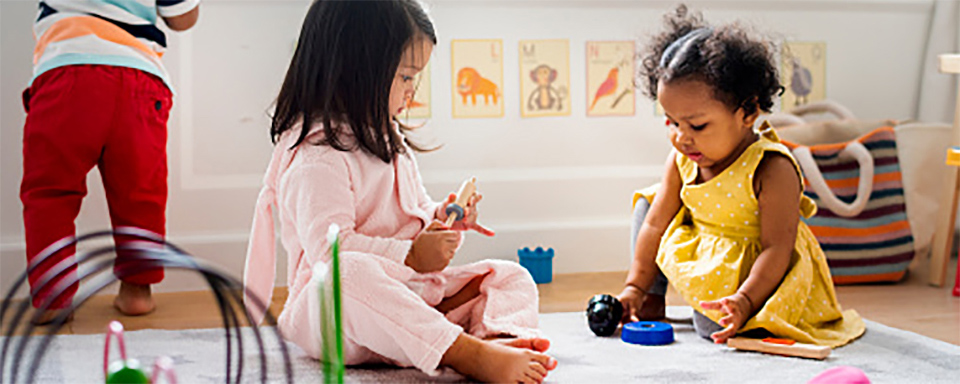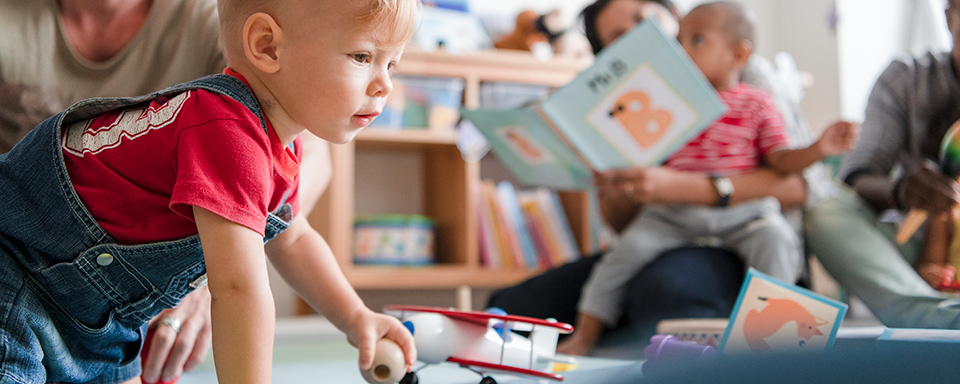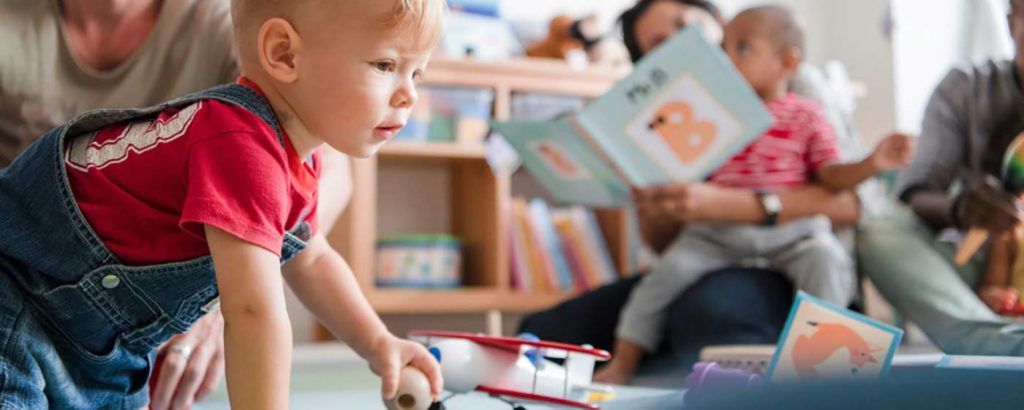A Note from Better Beginnings Program Manager Dawn Jeffrey
A, B, C…1, 2, 3, Raising a Reader is so easy! Okay, let’s get real. I know what you’re thinking.
“There isn’t enough time in the day!”
“What? I’m not a teacher. What if I do it wrong?”
“My child hates books!”
Listen. I’m telling you…no I’m PROMISING you, this is doable. It’s a lot more simple than you think.
That’s good news, too, because literacy skills are a huge part of prepping your child for Kindergarten. Don’t worry, though. We are not talking about reading books aloud from front to back. When I say literacy skills, I mean simple things like letter recognition, rhyming or taking turns in conversation.
There is more good news. You can start teaching these skills early. Did you know your child begins to develop literacy skills as early as four months when she simply sees a picture in a book, and he may begin to show interest in the story as early as six months?
Literacy skills go way beyond Kindergarten too. Your child will carry these skills into adulthood, and likely use in her daily routines. It really is the skill that keeps on giving—the foundation of learning.
You do not need a full set of lesson plans and a closet full of classroom supplies to jumpstart your child’s development of literacy skills. Better Beginnings believes the best way to assure your child is receiving quality education is by Learning through Play.
You heard that right. You can teach your child important skills by playing pretend, acting out a story or joining a game of eye-spy. Honestly, it’s a win-win situation. Your child will be more engaged if you let loose and get silly with her, and I think I speak for all of us grown-ups when I say, we could ALL use a little more silly in our lives.
The key word here is “engage.” Get hands-on. Think out-of-the-box. I am not saying a nightly bedtime story isn’t enhancing literacy skills, I’m just reminding you that even the most mundane tasks hold a literacy lesson. What does your child see? What does she hear? What action is he doing?
Street signs. Sing-a-longs. Hopscotch! Literacy is all around us, and it’s up to you to open your child’s eyes to that magic.
Walk-N-Talk | Looking for Literacy
Anytime you can get outside and learn with your child, do it. Well, when the heat isn’t intolerable, at least. A simple walk around the neighborhood or your local park provides plenty of opportunity for your child to learn new words. It gets you and your family moving too!
Street signs are great for this. They are big and colorful and they usually come in all sorts of shapes. Another good thing about them is they stay put. So, if you keep your walking routes the same, your child will see them over and over. Repetition is critical to your child’s learning retention.
Try a matching game. At the beginning of your walk, teach your child the shape and color of a particular sign. Then, let him point to other objects of that shape and color throughout your walk. Start with a stop sign. What else is red? What else is round? If your child recognizes letters and numbers, label what else starts with that letter, or find things that rhyme with that word. The wonderful thing about this activity, is you can always take it to the next level. Eventually, your child will sound out the letters and words on the signs. You can even try asking your child to write the letters and words he remembers while he enjoys his post-walk snack. Even better, ask him to tell you what he remembers seeing on the walk. See how many details he includes.
Let your child take in the rest of your surroundings too. Ask all of the who, what, when, where and why questions. ANSWER all of them too!
PS: This would also be an ideal time to teach your child his address.
We have two ears and one mouth for a reason! | Listening for Literacy
Talking to your child is something you can start during his first year. He might not understand you, but he hears you. Try talking through your daily routines like putting him to bed, brushing your teeth and eating breakfast. Don’t forget to make eye contact! He is paying attention, and don’t be surprised when he coos and babbles back! In fact, have fun with that! Respond to those precious attempts at conversation. This is the beginning of his speech journey! Enjoy this stage. It will pass quickly.
If you have been blessed with the gift of music, you will love this one. If not, do-re-mi-fa-so-la-ti-DON’T let that stop you! (See what I did there?) Songs are repetitive and most kid-friendly tunes are energetic. That’s your child’s love language–easy to remember and fun! Try singing and dancing to Head, Shoulders, Knees and Toes! With the little ones, point to each and ask, “What’s that?” Again, she may not understand the question or have the answer, but practicing this repeatedly will teach her more than you think. Challenge your older toddlers to skip one of the words each time. Ya know, “Head, shoulders _____ and toes. ____ and toes!” Try it opera-style or as your child’s favorite character. This will inspire creativity and keep them from getting bored.
Think your child is too young for songs and dances? No way! Put that little one on your hip and have a dance party. Have older ones and younger ones? Great! Get the whole band together with these DIY instruments. Let the band warm up by telling you what sound each one makes. Who knows? Maybe you guys will be the next Von Trapp family!
Turnin’, Burnin’ and Learnin’ | Leaping for Literacy
Just like my thoughts on getting outside, if your child can work on literacy skills WHILE exercising, JUMP on it! For the older ones, this is a great time to work on action words. Try a basic game of Simon Says first. Just give simple commands at first. Jump. Hop. Skip. Run. Walk. Sit. Stretch. Dance. Push. Pull! Sounds like a workout, right? My heart is thumping just thinking about it.
Your child isn’t so sensitive to cardio, though. If she is crawling, she is probably more like a mix of The Energizer Bunny and The Little Engine that Could. Am I right? Well, use this to your advantage. Just like your child learns from seeing things over and over, and hearing things over and over, she learns by doing over and over.
Games like this Simon Says Roll activity (for the older ones) are excellent for working on following directions and speaking in sentences too. Following three-word directions and forming four- to six-word sentences will help your child in Kindergarten. Games also teach your child how to take turns, another important skill needed for Kindergarten.
Oh, and WARNING: The above may cause uninterrupted naps and 7:30 bedtimes.
So, you see, Raising a Reader really is not that scary. Literacy is so much more than advanced vocabulary and reading comprehension. Literacy improves your child’s social skills. This helps her have good conversations and form meaningful relationships. Literacy helps your child emotionally, empowering her to use her words to explain how she feels. Literacy supports your child mentally. It is a set of skills that she will need to be successful in other subjects like math and science.
With all that being said, don’t let the importance and complexity of literacy convince you this is something you cannot handle. When you remind yourself that literacy skills can be taught with these simple activities, it just sounds like making a lesson out of the everyday things you are going to do anyway. Right?
I mean, street signs aren’t exactly a rare sighting. Chances are, you hear at least one song a day. And even on the laziest of all rainy Sundays there ever was, you’re going to have to move around just a little bit.
No lesson plans needed. You do not need a lengthy supply list. All I am suggesting is to bump your normal routines up the tiniest of notches. Isn’t it cool to think about your child’s relationships that will grow, the education she will focus on and the confidence she will build all from learning some words?
It’s. That. Simple.
AND. That. Rewarding.
Seeing. Hearing. Doing.
Looking. Listening. Leaping.
LEARNING.
Be sure to follow us on Facebook, Twitter and Instagram to stay caught up with the Better Beginnings community. You can also sign up for our monthly newsletter, The Buzz, here.
All the best,
Dawn Jeffrey M.S. E.
Division of Early Child Care and Early Childhood Education Program Manager for Better Beginnings
Select the PDF below to download this feature story.
